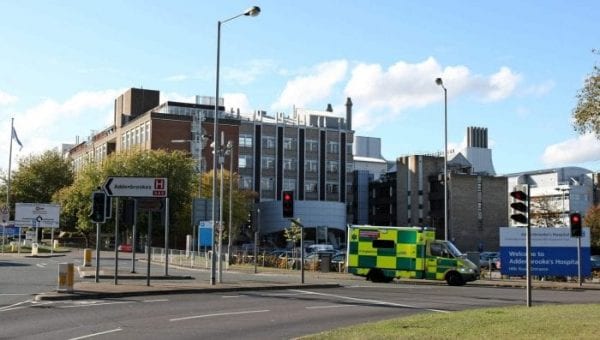Artificial intelligence used in bid to improve coronavirus treatment
- Life Sciences
- Innovation
- 2 Min Read
Artificial intelligence will be used in an effort to improve the treatment of coronavirus patients.
It is hoped that thousands of scans made available to hospitals will result in patients with Covid-19 receiving faster treatment, improved outcomes and shorter hospital stays.
NHSX, a unit tasked with driving the digital transformation of care in the NHS, has brought together 40,000-plus CT scans, MRIs and X-rays from more than 10,000 patients across the UK during the course of the pandemic.
The Department of Health and Social Care said access to this National Covid-19 Chest Imaging Database (NCCID) has now been extended to hospitals and universities across the country that are using the images to track patterns and markers of illness.

Clinicians at Addenbrooke’s Hospital in Cambridge are developing an algorithm based on the NCCID images to help inform a more accurate diagnosis of patients when they present to hospital with potential Covid-19 symptoms and have not yet had a confirmed test.
Using visual signatures of the virus, as they appear in chest scans, they are able to compare the patterns in the patient’s imaging with those seen previously in the NCCID to get a more accurate diagnosis and prognosis.
Understanding the earlier stages of disease means that clinicians are more easily able to implement appropriate, early medical interventions, reducing the potential for later complications.
This includes giving patients oxygen and medication before they reach a critical stage and predicting the need for additional ICU capacity, enabling the management of beds and staff resource in those settings.
The NCCID is also helping researchers to develop AI tools that could help doctors improve the treatment for patients with Covid-19.
The database is helping to inform the development of a potential national AI imaging platform to safely collect and share data, developing AI technologies to address a number of other conditions such as heart disease and cancers.
Health Secretary Matt Hancock said: “The use of artificial intelligence is already beginning to transform patient care by making the NHS a more predictive, preventive and personalised health and care service.
“It is vital we always search for new ways to improve care, especially as we fight the pandemic with the recovery beyond.
“This excellent work is testament to how technology can help to save lives in the UK.”

